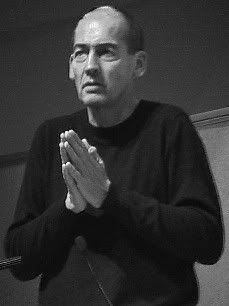I am sorry I have not joined in this exchange of views for some time. These past two weeks I have been completing my final exams in architecture at Erasmus University. I hope to pass my exams and earn my degree this year, because this is the seventh time I have taken this stupid examination.
The people who grade the exam are unfair. For example, I received this question pertaining to a “hypothetical” library (they were obviously referring to our Seattle project, in my opinion):
1. (a) Describe how you would supervise and coordinate the architectural work (bearing in mind that the work site will be a building that is in service), and what methods you would use to monitor progress, to ensure that the proposed plans are followed and to operate within the prescribed time frame and budget.
I will not be duped into a pedestrian response by such a question. It is a provocation. So I answered, quoting Rem Koolhaas exactly:
The word ‘architecture’ embodies the lingering hope – or the vague memory of a hope – that shape, form, coherence could be imposed on the violent surf of information that washes over us daily. Maybe, architecture doesn’t have to be stupid after all. Liberated from the obligation to construct, it can become a way of thinking about anything – a discipline that represents relationships, proportions, connections, effects, the diagram of everything.
If I am not awarded full credit for this answer I shall protest to the administration.
After my exam I had coffee with another student who asked me a question, and I think this is exactly the one that Mr. Lord would also ask. He said:
Latouche, you talk like a utopian, but it is obvious all utopias must be dictatorships. In order to be coherent, they must reflect the vision of one person only, and the selection of this person is a fundamentally political question.
This brought to mind Mr. Lord’s remark about “the ego-driven, hyper-individualized search for enlightenment among monks or apolitical intellectuals,” an obvious allusion to Carter Sparks.
But accusing us of utopianism is to misunderstand the pragmatic nature of my romantic modernism. As Mr. Koolhaas has very clearly explained:
“… Americans are talking about the problems of their cities, Europeans are talking about the problems of their cities, Asians are talking about the problems of their cities, but if you look at these cities there is almost no difference between them… This same phenomenon, separate objects stranded fairly randomly without any glue in a more or less objective landscape, is now true of large parts of Europe, America, and Asia. Since these conditions exist in these different contexts, with different political systems, different economies, and different ideologies, it isn’t those external and obvious factors that make them similar.
“Maybe we should stop looking for any kind of glue to hold cities together. In cities like Houston, people have found, largely without the help of architects, other forms of coherence. In Atlanta, for instance, there is a very common model, which is to simply sling a wall around an area, put up a gate, and hire guards. Of course, it’s not an architectural coherence, and it’s not the kind of coherence that we as architects are indoctrinated to respect, but it is a very strong kind of coherence."
So, Mr. Lord, yes, Utopia is political. But reality is not. Asia or America, left or right, it is all the same.
















